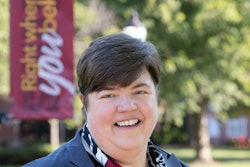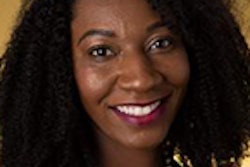Law professors and their students at the University of South Carolina had intense class discussions this spring as a “case for the ages” began to play out in their state.
North Charleston, South Carolina, became a focal point in the ongoing controversy over police shootings of African-American men when 50-year-old Walter L. Scott was shot several times in the back and killed as he ran from former police officer Michael T. Slager following a traffic stop on April 4. Bystander Feldin Sanana’s video of the shooting was widely televised, bringing international attention to the state and resulting in Slager being charged with murder and fired from the police department. Slager is currently being held without bail.
Seth Stoughton, an assistant professor at the university’s School of Law, has the distinction of being a former Tallahassee, Fla., police officer and a former investigator in the Florida department of education’s office of the inspector general. Since becoming a law professor Stoughton has published scholarly articles on the regulation of police in journals including the Minnesota Law Review and the Virginia Law Review. Despite his background in law enforcement, Stoughton tells Diverse the video “was so far beyond the range of acceptable police conduct, it was really quite disturbing.”
Stoughton adds, “Before the video was released the initial reports were that it was a tragic and frightening series of events involving a struggle … but it was a complete shock that what was described in the report did not match what was on the video.”
Joseph Wideman, president of the Black Law Students Association at the University of South Carolina, recalls that the shooting “did spark discussion” in the various classes. “I watched the video seven or eight times. It was kind of hard to believe. I couldn’t help wonder what if there wasn’t a video,” says Wideman, who is going into his third year of law school and hasn’t decided what area of the law he will pursue. “These incidents have sparked more interest for some of my colleagues to go out and fight for the rights, not just of minorities, but of everybody,” he adds.
Wideman points out that the Black Law Students Association was so concerned that the group organized a silent protest on Monday, April 13, which, according to the invitation letter sent to organizations throughout the state, was intended “to bring awareness to the injustice committed against the life of Mr. Scott.” The letter also stated, “Although we know the importance of law enforcement across the nation, these and other recent events throughout our country require the students in South Carolina to bring attention to the need for balance between the duties to protect and serve, and the rights of the citizens those duties were established to protect.”
To participate, all students and community members were asked to wear a green shirt, to signify the color Mr. Scott was wearing when he was shot and killed. The organizers also asked participants to wear nametags that read “My Name is Walter Scott.”














